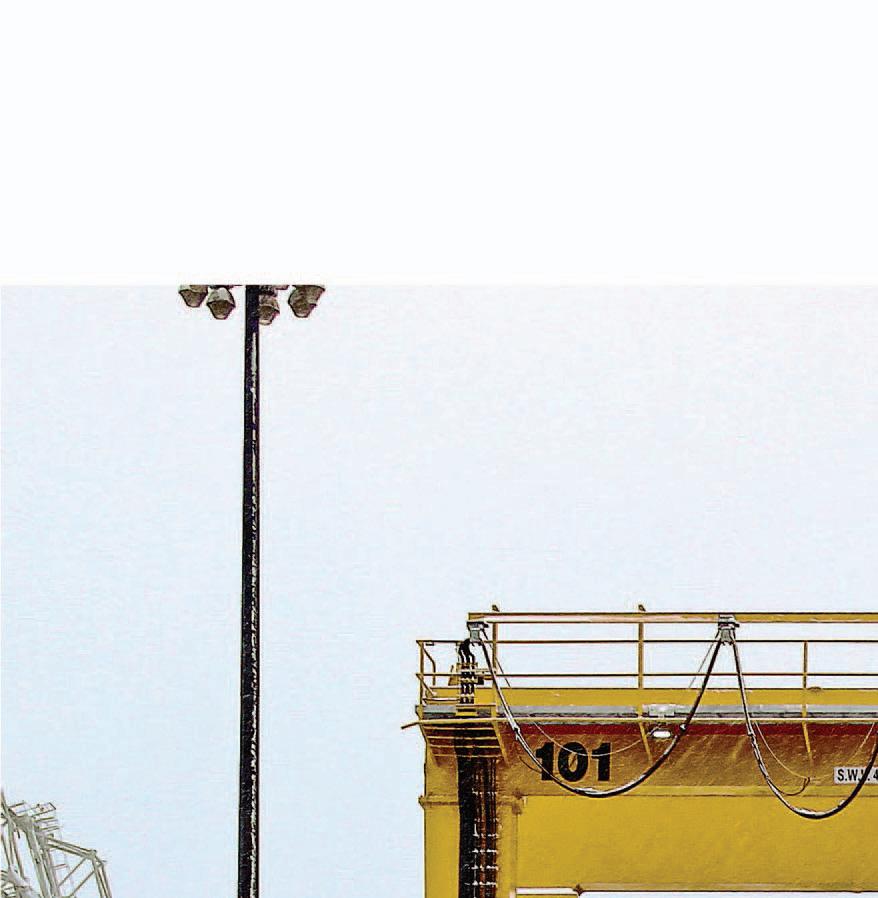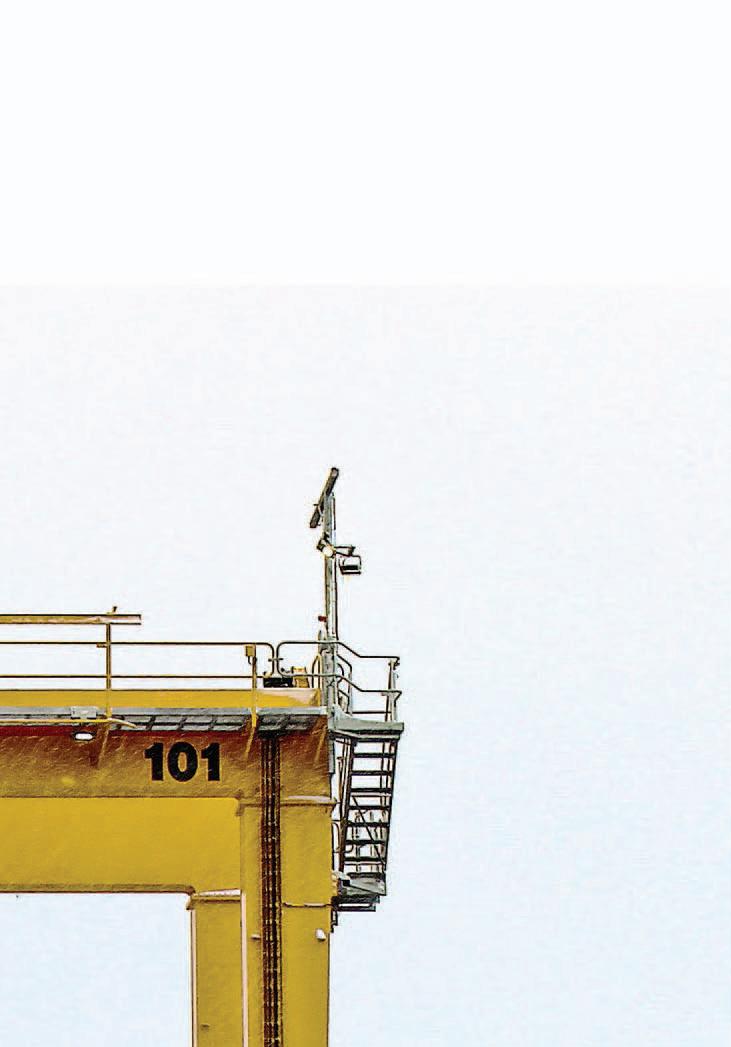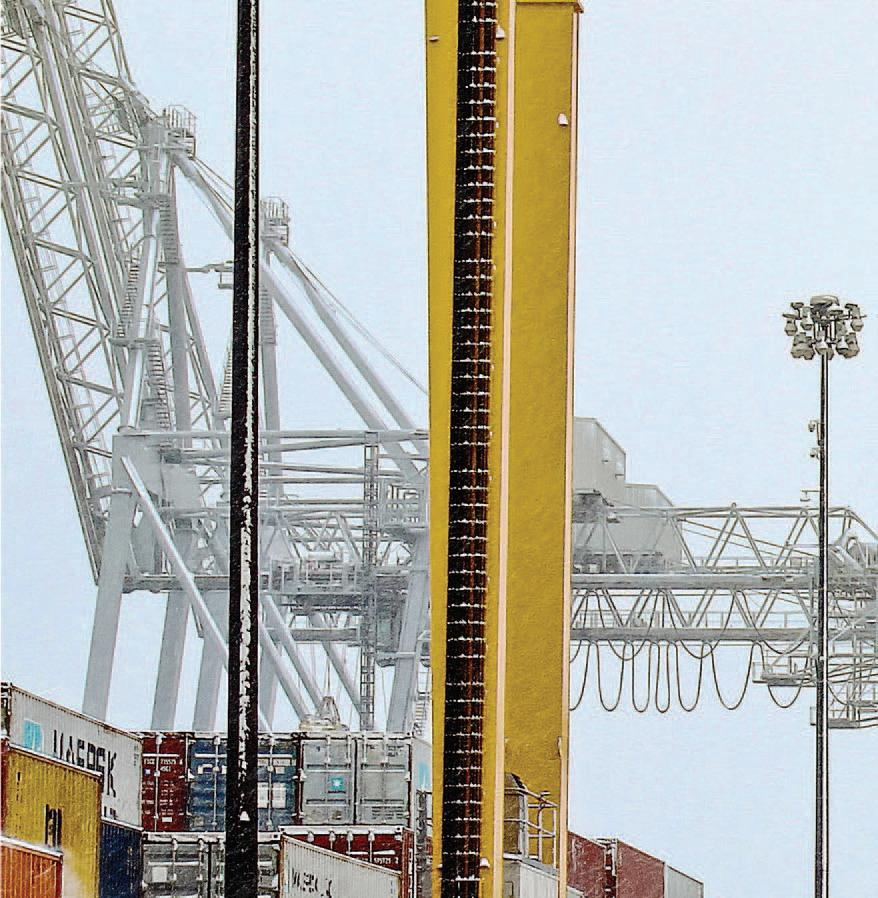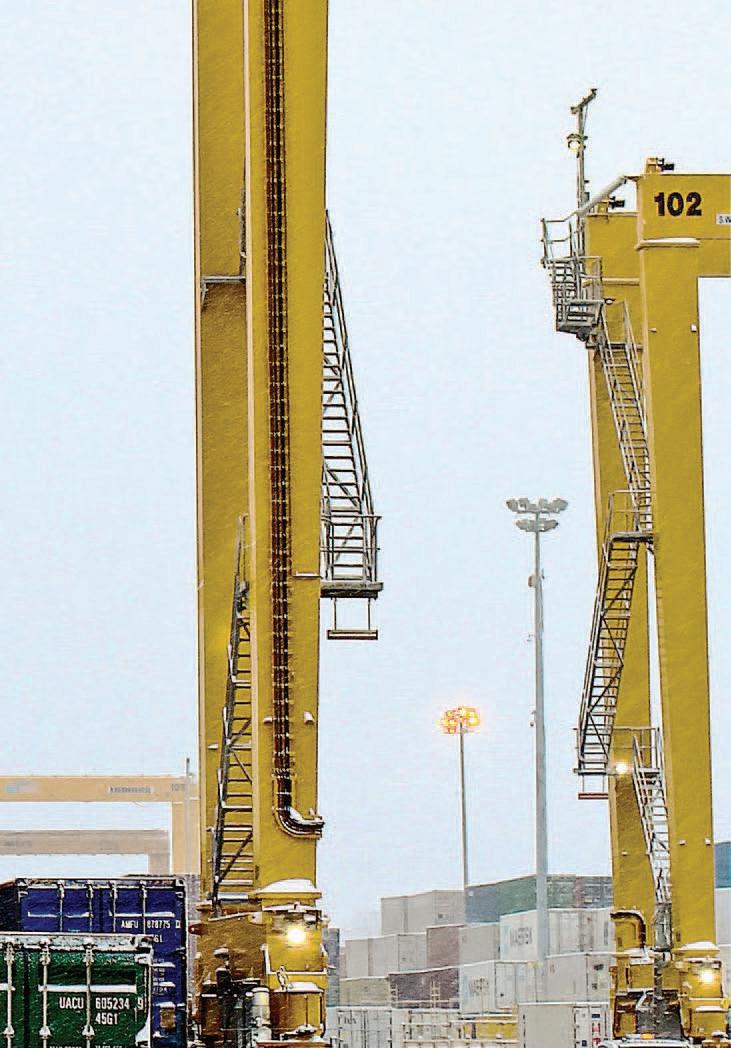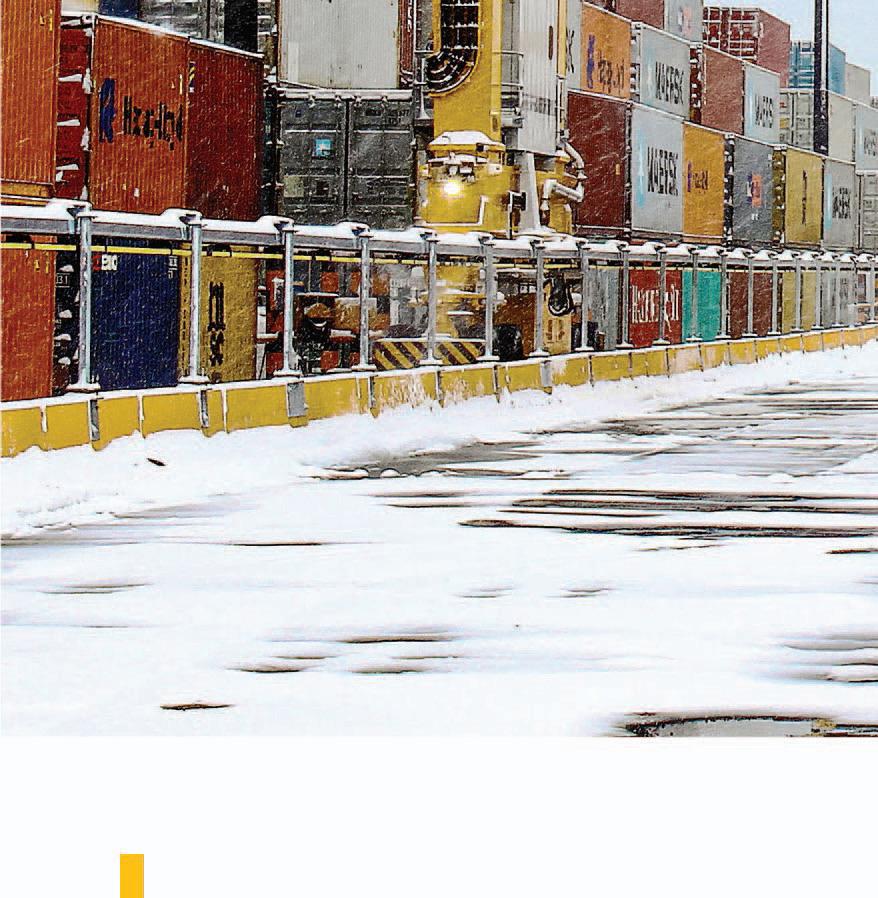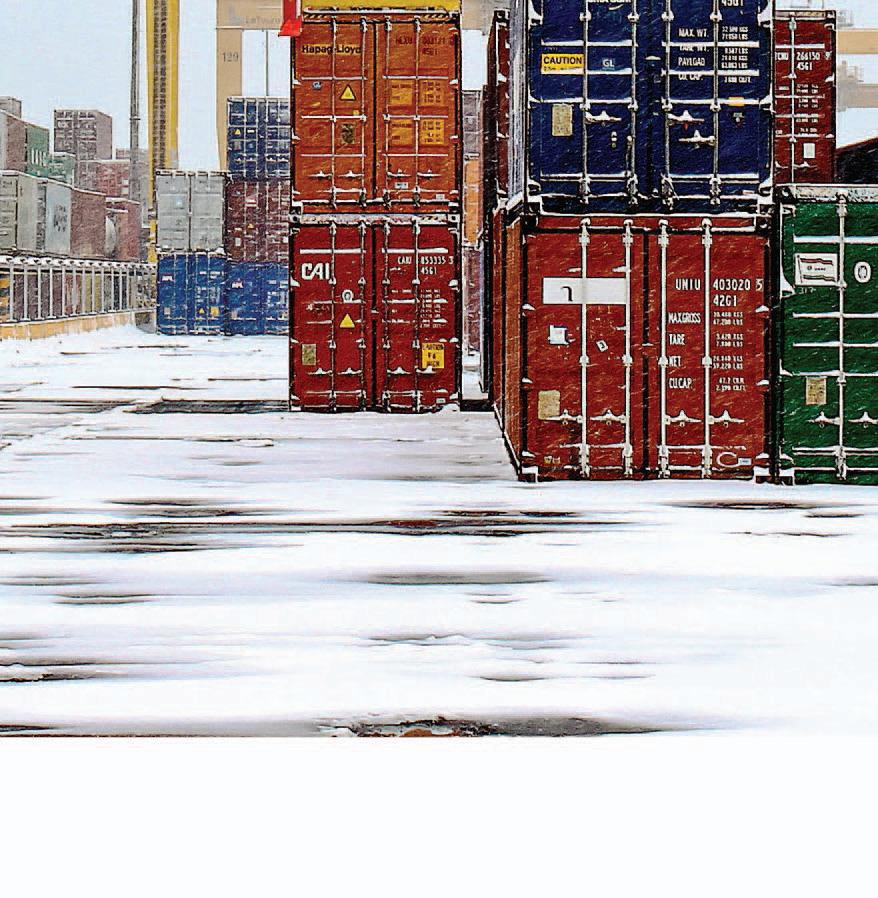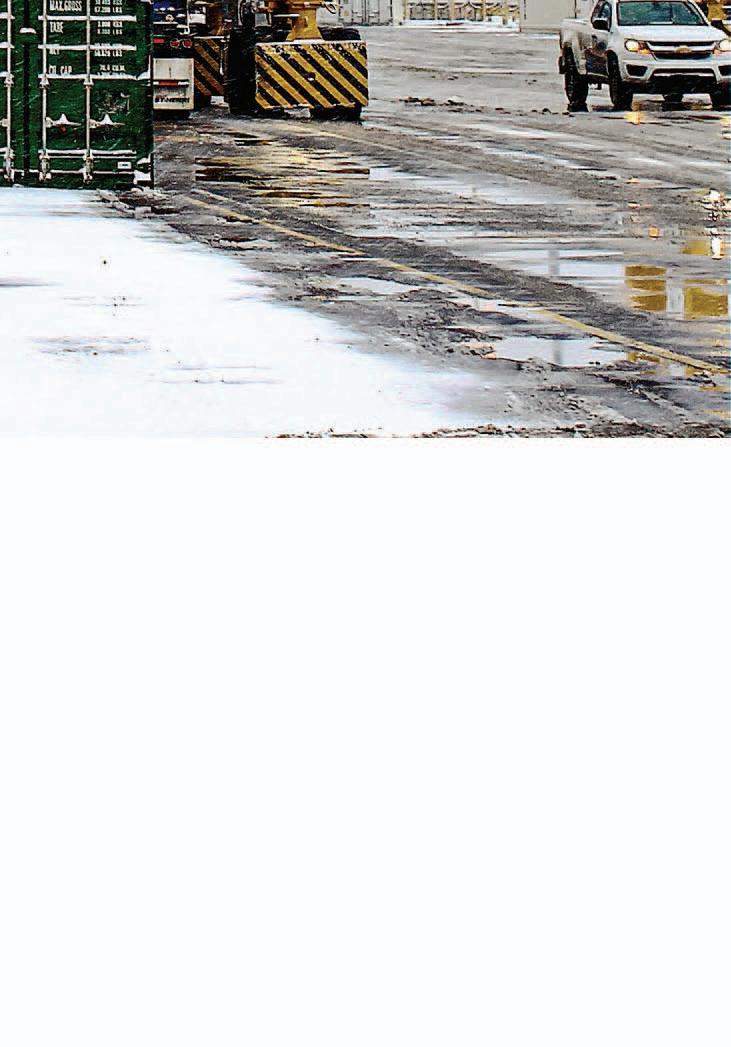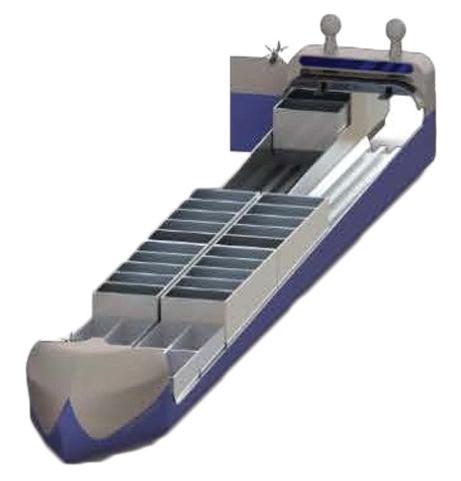
4 minute read
GreenPort LIVE
GREENPORT LIVE - ECOPORTS NEED TO BECOME THE ‘NEW NORMAL’
The best environmental port performers should become the 'new normal' in the wake of the Covid-19 pandemic and Brexit
That was one of the take-home messages from the first
GreenPort LIVE online conference*, which launched the ESPO
Environmental Report 2020.
“Any economic impact slows down the rate at which we can invest but it does not mean we are pulling back on green investments,” said Eamonn O'Reilly, chairman of ESPO and chief of Dublin Port.
“A comprehensive port masterplan is for the long term and incorporates both capacity development and the environment which is all intrinsically linked. Nowadays you can't do one without the other.”
The underlying challenge for any business, Mr O'Reilly says, is transcending the things you cannot meaningfully predict today, but we should still be cautiously optimistic.
TOP PRIORITIES
The report, now in its fifth year, surveyed nearly 100 ESPO EcoPorts on their environmental priorities.
ESPO intends to use the information gleaned from the report to help ports build environmental resilience going forward.
This year's report revealed that air quality is the top environmental priority for European ports.
Priorities 2 and 3, climate change and energy efficiency, are followed by noise, community relationship, ship waste, water quality, port waste, dredging operations and land related port development.
“This year's ESPO Environmental Report shows, that despite the challenging times ports are going through, environmental engagement and support has not been put on hold,” says Isabelle Ryckbost GreenPort LIVE host and secretary general, ESPO.
“The top three environmental priorities do not come as a surprise. It clearly shows what ports are having on their radar.”
Mr O'Reilly says that the top three priorities reflect a modern maritime industry. “It makes sense that we see land development slipping down the priority list,” he says. “It has been impacted by the need to develop land responsibly and our developing emotional intelligence of the impact we have on the environment.”
Over and above this, the report shows that ports have improved their transparency towards European citizens and local communities.
Another major positive trend is better communication of environmental policy with 91% of respondents communicating its policy to all stakeholders and 86% publishing it online.
BUILDING RESILIENCE
The report reveals that in 2020 over half of ports surveyed have experienced operational challenges relating to climate change, for example; more frequent storms, flooding and changes in wind and or wave conditions.
But reassuringly, 65% have taken steps to strengthen the resilience of their infrastructure.
And 71% of the ports surveyed consider climate change adaptation part of their new infrastructure development plans.
Meanwhile, ports continue to invest in green infrastructure such as shore-side electricity for ships at berth. In 2020, 58% have shore power berths available at one or more berths and 40% of those surveyed plan to offer OPS in the next two years. This is an 11% increase on 2019.
Most though (88%) offer low voltage hook-ups airing on the side of caution with the financial risk, uptake and technical challenges associated with installing high voltage systems.
When it comes to LNG, the result is similar to 2019's report with 33% of those ports surveyed offering LNG bunkering, largely by truck. But 22% have ongoing LNG bunkering infrastructure projects in port. 57% of the ports offer green incentives for ships to call as of this year, mostly for reduced air emissions. 30% of ports plan to introduce reduced port dues during the next two years.
WAY FORWARD
Going forward the role of the port managing body is a challenge but also an opportunity.
“We need to be realistic about what ports can do,” says Mr O'Reilly. “We act like a facilitator, rather like a football pitch, for the players to come out and have a match. We need to facilitate where we can.”
He said that for ESPO, one of the main jobs going forward is to facilitate really clear European policy so that ports can play their part in achieving their environmental objectives
Ports on the other hand should measure and report their activities to the local and wider communities and they need to be prepared to make investments even in tough times.
“If all these elements come together then ports can bring about all of these top environmental priorities,” he said.
GreenPort LIVE ended with an introduction to the GreenPort Congress 2021 by Nektarios Demenopoulos from the host port, Piraeus Port Authority. The conference will take place from 2022 October 2021.
Did you miss GreenPort LIVE? Don't worry you can now watch it online. Just search ‘GreenPort' on YouTube.
8 The first GreenPort LIVE online
conference took place on 10 November 2020 and launched the latest ESPO Environmental Report 2020
